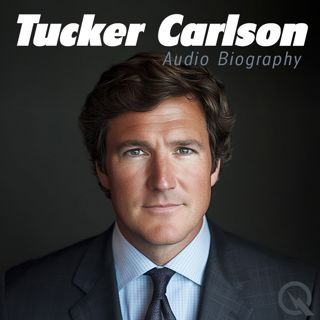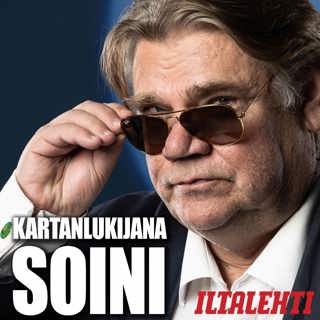
"Chilling Warnings of Military Coup Amid Trump's Potential Return to Presidency"
**Tucker Carlson Raises Alarm Over Potential Military Coup if Trump Wins Presidency Again**In a striking discussion with JD Vance, Tucker Carlson, the controversial yet influential conservative commentator, vocalized his apprehensions regarding the possibility of a military coup should former President Donald Trump win the presidency again. The exchange between Carlson and Vance, a figure known for his Senate candidacy and the author of "Hillbilly Elegy", has ignited a flurry of reactions across the political spectrum, underscoring a deepening unease about the stability of American democracy.Carlson’s forewarnings are significant, not only because of his extensive following among conservative viewers but also due to the gravity of the allegations themselves. The idea of a military coup, a scenario hardly imaginable in the context of American political traditions, paints a worrying picture of the potential challenges facing the nation's future electoral outcomes.While the details of the conversation between Carlson and Vance have not been fully disclosed, the mere mention of a coup is resonant of the deep divisions and the volatile political climate in the United States. This dialogue surfaces in a period marked by unprecedented attacks on democratic norms, including the January 6th insurrection at the U.S. Capitol, where supporters of Trump attempted to overturn the 2020 presidential election results—an event that still casts a long shadow over the country's political landscape.Melania Trump's unspecified involvement or reference in this dialogue adds another layer of intrigue to the situation. As former First Lady, her name carries significant influence, and any mention in the context of such a serious conversation sparks curiosity about her role or position on this subject.It is important to understand the implications of Carlson's concerns within the broader political and social context. The U.S. military has traditionally remained apolitical, upholding a longstanding principle of non-interference in political affairs. The suggestion of a military coup breaks with this principle and signifies a potential threat to the core of America’s democratic framework.This revelation demands a critical examination of the strains on American democracy and the safeguards necessary to protect against internal turmoil. It raises questions about the resilience of political institutions and the mechanisms in place to prevent such unprecedented events. The discussions between Carlson and Vance, regardless of one's political leanings, should prompt a reflective and urgent dialogue on preserving the sanctity of the democratic process in the United States.As the nation grapples with these concerns, the focus must remain on reinforcing democratic norms and ensuring a peaceful transfer of power, fundamental tenets that have underpinned the American political system for centuries. The potential for conflict highlighted by Carlson's warning is a stark reminder of the importance of vigilance, dialogue, and commitment to democracy.This content was created in partnership and with the help of Artificial Intelligence AI
24 Syys 20243min

Delay Frustrates Crowd at Vance-Carlson Event: Insights into Event Planning Challenges in the Digital Age
Amidst the highly anticipated event featuring notable public figures JD Vance and Tucker Carlson, an unexpected delay set the stage for a whirl of frustration among attendees. Social media platforms quickly became the sounding board for those affected, with numerous individuals expressing their disappointment and skepticism regarding the reason behind the holdup.JD Vance, a venture capitalist turned politician, and Tucker Carlson, a prominent media personality known for hosting the nightly political talk show "Tucker Carlson Tonight" on Fox News, were scheduled to appear at an event that had garnered significant public interest. The pairing of Vance, known for his critique of the American elite in his bestselling memoir "Hillbilly Elegy" and subsequent pivot to political life, with Carlson, an influential conservative commentator, promised an engaging discourse on current affairs, politics, and perhaps insights into the socio-economic landscape of America.However, as the event time approached and then lapsed with no sign of commencement, attendees found themselves caught in a limbo of waiting and uncertainty. The delay, with little to no immediate explanation from the organizers, set off a cascade of reactions among the crowd. Some attendees, turning to their smartphones and social media accounts, began to air their grievances online.The speculations among the crowd and online commentators varied, but a notable thread of frustration tied the comments together. There was a sense of disillusionment, especially as rumors circulated suggesting that the delay was justified by the organizers as due to an overwhelming demand and the logistical hiccups that come with managing larger than expected crowds. This reasoning, however, was met with skepticism by some attendees who hinted at a lack of planning or coordination, rather than an underestimation of audience size, as the more likely culprit for the delay.JD Vance and Tucker Carlson, both influential figures with significant followings, have often advocated for efficiency, accountability, and a critique of the status quo in various aspects of American life, which only added an ironic twist to the delay of their event. Expectations were high for an evening of compelling dialogue and perhaps even solutions to the pressing issues facing America today. Instead, attendees were left with a lesson in patience and the unpredictability of live events.As the situation unfolded, the incident served as a reminder of the complexities involved in event planning, especially when dealing with high-profile figures and large audiences. It also highlighted the power of social media as an immediate outlet for customer feedback and public discourse. While the delay at an event featuring JD Vance and Tucker Carlson may have been a minor hiccup in the grand scheme of things, it underscored the ever-present challenges and expectations that come with the organization of large public gatherings in the digital age.This content was created in partnership and with the help of Artificial Intelligence AI
22 Syys 20243min

Former President Trump and Fox News' Tucker Carlson Promote Orban's 'Illiberal Democracy' at CPAC Texas
In a development that underscores the tightening bond between certain segments of American and European right-wing politics, former President Donald Trump has been reported to promote the ideas of Victor Orban, the Hungarian Prime Minister known for his authoritarian leanings and for championing what he calls 'illiberal democracy'. This alignment was highlighted during the Conservative Political Action Conference (CPAC) held in Texas, where Orban was given a platform to address an audience of American conservatives.Orban's presence and address at the CPAC event signify the growing embrace of his ideologies by some factions within the US conservative movement. Orban, who has held power in Hungary since 2010, has been a controversial figure on the global stage. Critics argue that under his leadership, Hungary has seen an erosion of democratic institutions, the consolidation of power within a single party, the curtailing of press freedoms, and the aggressive pursuit of anti-immigration policies—all illuminated by a nationalistic and at times, xenophobic rhetoric.The connection between Trump and Orban is not entirely new; Trump praised Orban during his presidency, admiring his strong stance on immigration and his ability to maintain power within Hungary. Their ideological alignment, particularly on issues such as immigration, the role of traditional family values, and skepticism toward multinational alliances and liberal democratic norms, has drawn them together.The presence of Tucker Carlson, a prominent conservative commentator and Fox News host, at the event underscores the importance of Orban's participation. Carlson has previously interviewed Orban and has expressed admiration for Orban's governance, signaling a mutual appreciation between Orban and certain conservative media figures in the US. This relationship between Carlson and Orban highlights a bridge being built between American conservative media and European right-wing politics, one that champions sovereignty, nationalism, and a critique of global liberal establishments.The promotion of Orban's ideology by figures like Trump and coverage by platforms associated with Carlson represents a notable shift in the American conservative landscape. The CPAC, known for being a major gathering of conservative activists and politicians in the US, provided a stage for Orban to present his vision of politics, one that seems to increasingly resonate with a segment of the American right.This incident raises questions about the influence of foreign political models on American discourse and the future direction of conservative politics in the US. It highlights a growing faction within American conservatism that appears willing to entertain, if not embrace, models of governance that diverge significantly from the liberal democratic norms that have traditionally underpinned Western political philosophy. As such, the endorsement and promotion of Orban's ideas by prominent figures like Trump and Carlson may have lasting implications for the ideological composition and direction of conservative politics in the United States.This content was created in partnership and with the help of Artificial Intelligence AI
21 Syys 20243min

Renowned Historian Victor Davis Hanson Reflects on Carlson-Cooper Interview, Sparking Widespread Discourse
In a recent captivating discussion, the renowned Victor Davis Hanson shared his reflections on Tucker Carlson's in-depth interview with Darryl Cooper—a segment that has already caught the attention of more than 222,000 viewers since its release on the Pepperdine School of Public Policy's platform.Victor Davis Hanson, an esteemed classicist, military historian, and senior fellow at the Hoover Institution, is no stranger to the world of political commentary and analysis. His insights into the complexities of public policy, history, and culture have long been valued for their depth and clarity. Within this context, his reaction to the conversation between Tucker Carlson, a prominent conservative political commentator and television host, and Darryl Cooper, adds another layer to the multifaceted dialogue surrounding current events and societal dynamics.The interview itself was a significant event, marking a space where deeply reflective and thought-provoking discussions were brought to the fore. Tucker Carlson, renowned for his forthright and often polarizing takes on politics and social issues, sat down with Cooper, who has been making waves in political and cultural conversations. The specifics of their dialogue spanned a myriad of subjects, reflecting the wide-ranging interests and expertise of both figures.Victor Davis Hanson’s reaction to this interview underscores its significance in today’s discourse. His perspective not only highlights the importance of the subjects discussed but also sheds light on the broader implications of such dialogues in shaping public opinion and policy. Given Hanson’s background and the respect he commands in the field of classical education and contemporary analysis, his engagement with the interview adds a valuable and scholarly viewpoint to the conversation.The Pepperdine School of Public Policy, by hosting this reaction on its platform, reaffirms its commitment to fostering a vibrant community of discourse and debate. As a leading institution dedicated to the comprehensive study and understanding of policy issues, Pepperdine is an ideal venue for such high-level discussions. The viewership numbers testify to the public's keen interest in these dialogues, reflecting a collective desire to delve deeper into the issues that shape our world.The discussion between Carlson and Cooper, followed by Hanson's insightful analysis, represents a confluence of thought leadership and intellectual rigor. It is a testament to the ongoing relevance of informed, nuanced debate in navigating the complexities of the contemporary sociopolitical landscape. Such conversations are not only crucial for academic and policy circles but also for the broader public, seeking to understand the forces that shape our realities.As we move forward, the dialogues facilitated by figures like Tucker Carlson, Darryl Cooper, and Victor Davis Hanson will undoubtedly continue to inspire and provoke thought. Their contributions remind us of the power of conversation in uncovering truths, challenging assumptions, and forging pathways to a better understanding of the world. The engagement these discussions generate is a hopeful indicator of a society committed to exploring the depths of its convictions and the breadth of its possibilities.This content was created in partnership and with the help of Artificial Intelligence AI
19 Syys 20243min

Exposing the Pharmaceutical Industry's Deception: A Crucial Conversation on Transparency and Accountability
In the constantly evolving world of pharmaceuticals and media, it's not uncommon to come across headlines that grab your attention, stir debate, or provoke thought. A recent video segment that has been stirring considerable attention and debate is from renowned commentator Tucker Carlson, known for his forthright and sometimes controversial opinions. Titled "Pharma Is Fooling You Again, and You Don't Even Know It," this piece has already amassed a staggering 2.7 million views, reflecting the significant interest and concern surrounding this topic. The segment's provocative nature underscores an ongoing dialogue about the pharmaceutical industry's practices, transparency, and impact on consumers.The pharmaceutical industry plays a critical role in global health, developing, and distributing medications that save lives and improve the quality of living for millions worldwide. However, it has also faced criticism over issues such as pricing practices, transparency in clinical trial data, and aggressive marketing tactics. Tucker Carlson's segment taps into the public's growing skepticism about Big Pharma's intentions and methods, suggesting that consumers are being misled or kept in the dark about certain aspects of the industry's operations.The detailed discussion in Carlson's segment likely explores various ways in which the pharmaceutical industry could be 'fooling' the public, although specifics are not provided in the brief. Typically, such critiques include the lack of transparency in drug pricing, where the actual costs of research and development are opaque, leading to accusations of price gouging, especially in the United States. Another contentious issue could be the marketing of drugs for off-label uses, a practice that, while legal under certain conditions, has led to significant controversy and lawsuits when companies push the boundaries of these regulations.Moreover, the opioid crisis has thrown a harsh spotlight on the pharmaceutical industry, with companies accused of pushing these powerful painkillers onto the market while minimizing their addiction risks. The legal battles and settlements that have followed shed light on the problematic aspects of how drugs are promoted and sold.Carlson's segment likely resonates with a wide audience, from those who have experienced the high costs of medication firsthand to those who follow the debates over healthcare policy and corporate responsibility. The enthralling number of views indicates that the topic of pharmaceutical ethics and practices is not only timely but touches on the concerns of millions who navigate the healthcare system and rely on its products for their well-being.Discussion segments like "Pharma Is Fooling You Again, and You Don't Even Know It" play a vital role in media and society, providing a platform for critique and debate. Whether one agrees with Carlson's viewpoint or not, the prominence and popularity of such segments underscore the critical need for ongoing dialogue about the pharmaceutical industry's role in society, the ethical considerations at play, and how best to ensure that the interests of consumers and patients are not just considered but prioritized.As the discussion unfolds and more people engage with Carlson's segment, it will undoubtedly contribute to a broader conversation about trust, transparency, and accountability in the pharmaceutical industry. A dialogue that, ideally, leads to reforms and practices that align more closely with the public interest and the imperatives of public health.This content was created in partnership and with the help of Artificial Intelligence AI
17 Syys 20243min

Jon Stewart's Scathing Takedown of Tucker Carlson Shakes Up Political Media Landscape
In a television exchange that has since become legendary, Jon Stewart confronted Tucker Carlson in a manner that transcended the usual decorum of late-night television. The encounter, which took place on CNN's "Crossfire" in 2004, is often euphemistically referred to as Stewart "calling out" Carlson. However, the reality of that interaction was far more impactful and scathing, marking a significant moment in television history where the lines between entertainment and serious political discourse were vividly blurred.Jon Stewart, then the host of "The Daily Show," was ostensibly invited to "Crossfire" as a guest. However, from the outset, it was clear that Stewart had no intention of playing the typical promotional role expected of late-night television hosts in guest appearances. Instead, he seized the platform to deliver a powerful critique, not just of Tucker Carlson, but of the show's format and its contribution to the increasingly divisive political climate.Stewart accused Carlson and his co-host, Paul Begala, of performing "partisan hackery" and not living up to the journalistic responsibility of genuinely informing the public. He lamented that "Crossfire," a show that was ostensibly designed to present political debates to help inform the public, was instead contributing to the rising tide of cynicism within American political discourse. Stewart argued that the show's approach to presenting political issues in a strictly confrontational, binary manner was doing a disservice to its viewers. One of the most memorable moments of the exchange was Stewart directly addressing Carlson, saying, "You're as big a dick on your show as you are on any show." This line, though laced with humor, underscored the seriousness of Stewart's critique, highlighting the personal animus that often colored political reportage on "Crossfire." The directness and seriousness with which Stewart delivered his criticism were unusual for a figure who was primarily known as a comedian, and it took Carlson and the audience by surprise.The fallout from this encounter was significant. Not long after Stewart's appearance, CNN announced the cancellation of "Crossfire," with the network's then-president Jonathan Klein referencing Stewart's criticism as a factor in the decision. Klein noted that the confrontational format Stewart critiqued had indeed been a disservice to the network's viewers.The Stewart-Carlson face-off remains a watershed moment in the intersection of politics, media, and entertainment. It showcased the power of satirical comedy as a form of serious commentary and heralded the rise of figures like Stewart as influential voices in political discourse. The encounter also exemplified the growing disillusionment with traditional forms of political media and their role in a changing society, inspiring a generation to look beyond traditional news sources for their information.Stewart's "calling out" of Carlson was more than just a memorable television spat; it was a direct challenge to the status quo of political reporting and entertainment. It forced a reckoning within the industry about the role of media in shaping political discourse and underscored the responsibility of those who occupy these influential platforms. Furthermore, it highlighted Jon Stewart's unique position in American culture as a comedian who could offer incisive political critique, bridging the gap between entertainment and serious political engagement in a manner that was both unprecedented and profoundly influential.This content was created in partnership and with the help of Artificial Intelligence AI
15 Syys 20243min

"Prominent Thinkers Unpack Pivotal Political Dialogue on Influential Platform"
In a recent development that has caught the attention of political commentators and viewers alike, Victor Davis Hanson offered his insights on an interview conducted by Tucker Carlson with Darryl Cooper. This exchange, discussed on a platform affiliated with the Pepperdine School of Public Policy, has garnered significant attention, amassing over 31,000 views shortly after its release.The crux of this interaction lies in the diverse perspectives brought forward by Darryl Cooper, an insightful voice on political and social matters, under the piercing examination of Tucker Carlson, a figure known for his forthright and often controversial take on issues shaping America. Victor Davis Hanson, a well-respected thinker in conservative circles and an esteemed fellow at the Hoover Institution, known for his prolific work on military history, classics, and modern political commentary, provides a thoughtful analysis on this dialogue, emphasizing its implications and the broader discussions it invokes among the public and political intellectuals.In examining the content of Carlson's interview with Cooper, Hanson touches upon several critical themes that reflect the currents running through American political discourse. Although specific details of their discussion are not provided in the initial report, one can infer from Hanson’s involvement and the profile of the individuals engaged in the conversation, that the topics likely span significant issues affecting the United States, possibly including political polarization, cultural shifts, and challenges to constitutional norms amid a rapidly changing social landscape.The platform where this analysis was shared, associated with the Pepperdine School of Public Policy, suggests an engagement with these themes that is both serious and academic, aimed at fostering a comprehensive understanding of the policies and principles at stake. In a time where public discourse is often fragmented by competing narratives and rapid news cycles, such in-depth discussions and analyses offer a respite and an opportunity for deeper reflection on the fundamental questions facing society.Viewers engaged with the content have not just passively consumed the insights offered by Hanson, Carlson, and Cooper, but have also contributed to the evolving conversation around the topics discussed, as evidenced by the substantial view count and anticipated feedback loops through comments and discussions both online and offline. This interplay between the commentators and the public signifies the vitality of democratic discourse and the continued relevance of engaged, informed debates on the direction in which society is heading.As the discussion initiated by Tucker Carlson's interview with Darryl Cooper, and further examined by Victor Davis Hanson, continues to ripple through the public sphere, it underscores the crucial role that informed commentary and earnest conversation play in shaping the understanding of complex political realities. It stands as a testament to the power of dialogue in bridging divides and fostering a more nuanced appreciation of the challenges and opportunities that lie ahead for the nation.This content was created in partnership and with the help of Artificial Intelligence AI
14 Syys 20243min

Navigating the Media-Politics Intersection: Tucker Carlson's Controversial Kremlin Engagement
Title: The Kremlin's Bold Invitation: Tucker Carlson's Controversial Engagement with PutinIn a bold move that has caught the attention of international observers, the Kremlin has recently signaled its openness to engaging with American conservative pundit Tucker Carlson. This invitation comes in the wake of Carlson's February interview with Russian President Vladimir Putin, an interaction that has stirred considerable discussion regarding the relationships between Western media figures and Russian political leadership.Vladimir Solovyov, a prominent figure within Russia, made a striking comment regarding the anticipation surrounding potential efforts to implicate Carlson in broader political narratives. Solovyov's remark, “I’m waiting for when they try to drag in Tucker Carlson,” resonates with the tense atmosphere surrounding Russo-American relations and the contentious role media figures can play in this global dialogue.Tucker Carlson, known for his conservative viewpoints and critical stance towards mainstream media narratives, conducted an interview with Putin earlier this year. This interview, conducted in Russia, marked a significant moment, illustrating the intricate dance between media and politics on the international stage. The engagement served not only as a platform for Putin to articulate his perspectives to an American audience but also highlighted the complexities of media diplomacy in today's geopolitical climate.The interview has since been a subject of extensive analysis, with experts examining the implications of such direct communication between an American media figure and the Russian president. It raises questions about the nature and impact of engaging with controversial leaders through the lens of media, as well as the potential repercussions for individuals like Carlson who find themselves at the intersection of journalism and international politics.Solovyov's comment underscores a broader anticipation for the consequences that may befall Tucker Carlson following his high-profile interaction with Putin. It hints at the potential for Carlson to become entwined in the intricate web of political maneuvering and public relations strategies that characterize relations between the United States and Russia.This situation serves as a poignant reminder of the power of media in shaping public perception and foreign policy. As figures like Carlson engage with leaders such as Putin, the implications of such interactions reverberate far beyond the immediate moment, potentially influencing diplomatic relations and shaping the discourse around international issues.As the international community watches closely, the unfolding dynamics between media personalities like Tucker Carlson and political leaders on the world stage will undoubtedly continue to spark debate and analysis. This scenario illustrates the evolving nature of global diplomacy, where media and politics intersect with profound consequences for international relations and public understanding.This content was created in partnership and with the help of Artificial Intelligence AI
12 Syys 20243min





















